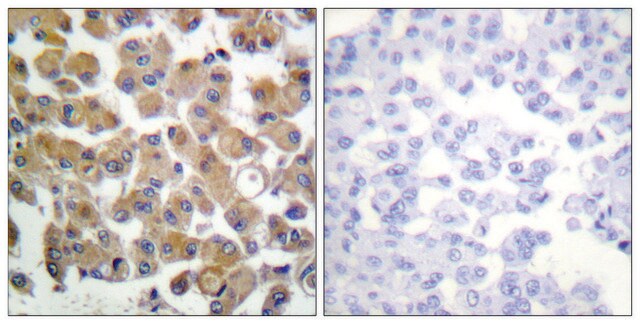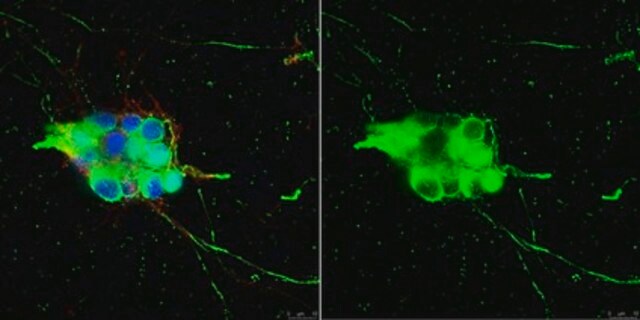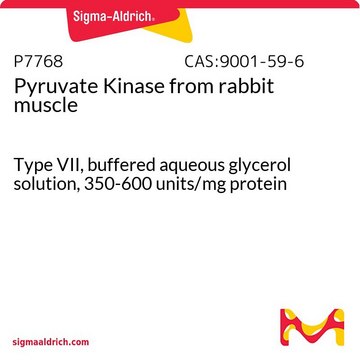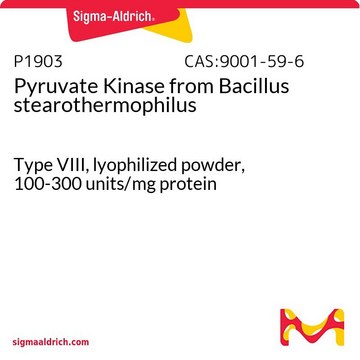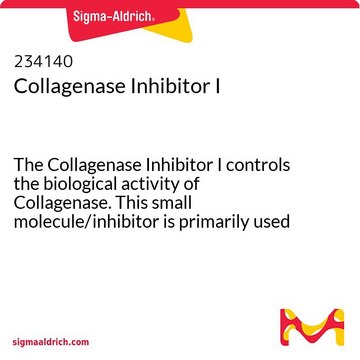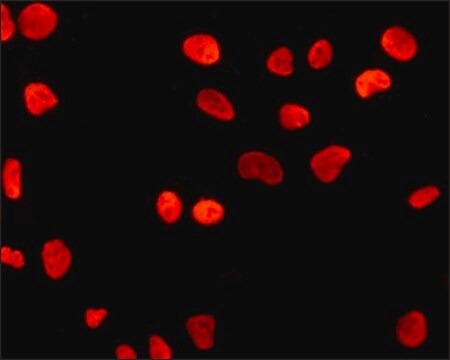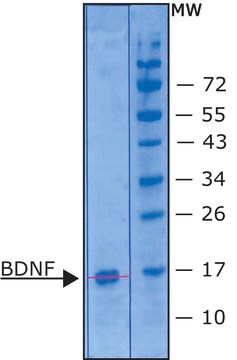SRP6054
ProNGF human
recombinant, expressed in E. coli, ≥95% (SDS-PAGE), ≥95% (HPLC)
Synonim(y):
Beta-NGF, Beta-nerve growth factor
Zaloguj sięWyświetlanie cen organizacyjnych i kontraktowych
About This Item
Polecane produkty
Opis ogólny
The nerve growth factor (NGF) gene produces pro-nerve growth factor (proNGF), a soluble 246 amino acid pro-peptide. NGF belongs to the neurotrophin family. NGF gene is located on human chromosome 1p13.2.
Zastosowanie
ProNGF human has been used as a standard in the de-glycosylation experiment for comparative studies by western blotting.
Działania biochem./fizjol.
Pro-nerve growth factor (proNGF) participates in fetal neural development. It promotes neuronal survival and differentiation, or apoptosis, by interacting with particular nerve growth factor (NGF) receptors on neurons. Haploinsufficiency of the nerve growth factor β (NGFB) gene results in sensory neuropathy.
The precursor form of the nerve growth factor (proNGF) like its mature form is characterized by the cystine knot motif consisting of three cystine bridges, whereas proneurotrophins and mature neurotrophins elicit opposite biological effects. ProNGF functions preferentially via the complex of pan-neurotrophin receptor p75 (p75NTR) and vps10p domain-containing receptor sortilin inducing neuronal apoptosis and contributing to age- and disease-related neurodegeneration.
Postać fizyczna
Lyophilized from a 0.2 μm filtered solution of 20 mM PB and 250 mM NaCl, pH 7.2.
Uwaga dotycząca przygotowania
Centrifuge the vial prior to opening.
Rekonstytucja
Dissolve in 1x PBS (It is not recommended to reconstitute to a final concentration less than 100 μg/mL.). This can further be diluted to other aqueous buffers.
Inne uwagi
Recombinant human ProNGF produced in E. coli is a non-glycosylated, non-covalently linked homodimer with each polypeptide chain containing 222 amino acids with an extra N-terminal Met and having a molecular mass of 25 kDa. The sequence of the first five N-terminal amino acids was determined and was found to be Met-Glu-Pro-His-Ser.
Ta strona może zawierać tekst przetłumaczony maszynowo.
Kod klasy składowania
11 - Combustible Solids
Klasa zagrożenia wodnego (WGK)
WGK 3
Temperatura zapłonu (°F)
Not applicable
Temperatura zapłonu (°C)
Not applicable
Wybierz jedną z najnowszych wersji:
Certyfikaty analizy (CoA)
Lot/Batch Number
Przepraszamy, ale COA dla tego produktu nie jest aktualnie dostępny online.
Proszę o kontakt, jeśli potrzebna jest pomoc Obsługa Klienta
Masz już ten produkt?
Dokumenty związane z niedawno zakupionymi produktami zostały zamieszczone w Bibliotece dokumentów.
Gregory J Fitzgibbon et al.
Developmental medicine and child neurology, 51(10), 833-837 (2009-02-03)
Pain insensitivity is mediated at the genetic level by the disruption of specific genes associated with neuronal development. Mammalian in vivo and in vitro studies have shown the nerve growth factor (NGF) gene to play an integral role in nerve
Marzia Soligo et al.
Neurochemistry international, 140, 104812-104812 (2020-08-08)
The precursor of Nerve Growth Factor (proNGF) is the predominant form of NGF in the brain, where its tissue levels are increased in neurodegenerative diseases. proNGF exists in two main splicing variants, the long proNGF-A and the short proNGF-B. We
Nasz zespół naukowców ma doświadczenie we wszystkich obszarach badań, w tym w naukach przyrodniczych, materiałoznawstwie, syntezie chemicznej, chromatografii, analityce i wielu innych dziedzinach.
Skontaktuj się z zespołem ds. pomocy technicznej